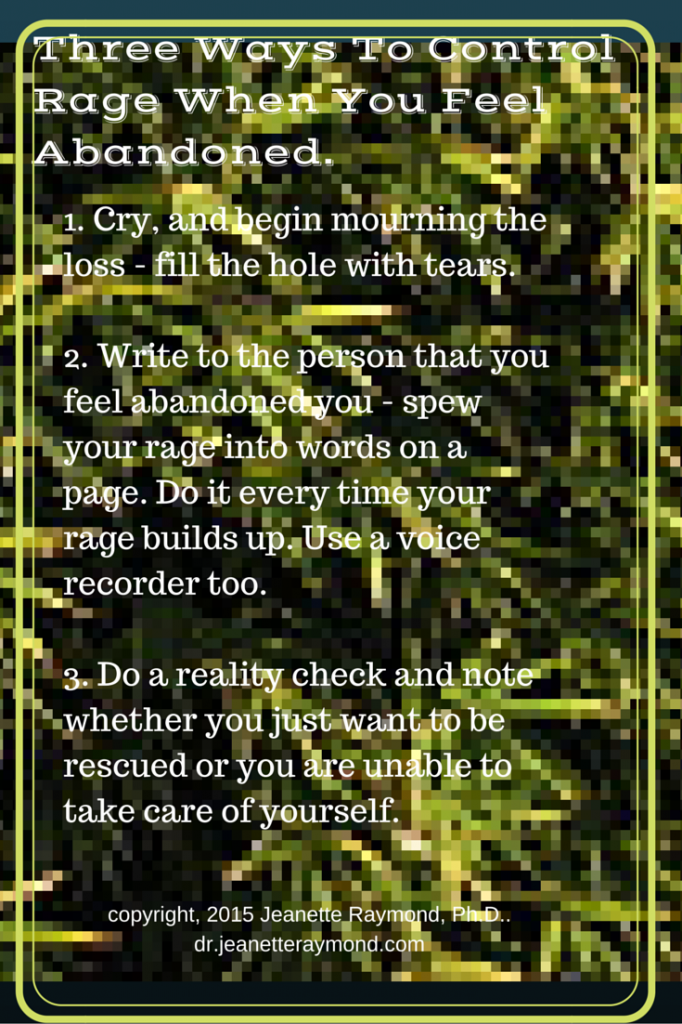Anger and Stress Management Tips for Satisfying Relationships
The sounds of begging and pleading for another chance fell on32-year-old Trudy’s deaf ears. Her 35-year-old husband Max had promised to stop using alcohol and drugs umpteen times, but he never got sober for more than a day or two. She had been let down too often, and now needed to protect herself from being seduced by those pitiful eyes, and his attentive ways.
Enraged at losing Trudy and their 5 year old daughter Sasha, Max spent most of his time enraged that he couldn’t get Trudy to listen to him. There was no other woman for him. He wanted her to pick him up when he was down and do the same for her. The only problem was that he remembered the good times and she remembered the bad times.
Owning up to his misdeeds wasn’t a problem for Max.
In fact the sooner he admitted fault, the sooner Trudy’s heart would soften and he would get the gentle loving he yearned for. He openly admitted that he wasn’t reliable and didn’t act responsibly. But when Trudy accused him of not being emotionally available for his family he exploded! Those accusations made him feel completely misunderstood. But when he tried to put her straight, she just talked over him, shutting him down. Rage built up and out came the bad language, accusing Trudy of never seeing any good in him and making him feel worse, when he was already owning his stuff and making efforts to improve.
Other times Max broke down in tears of helplessness. Trudy responded by bucking him up only to then get enraged herself and hold him accountable for the things he did that had wounded her – and that still stung.
“What about the time you left Sasha alone in bathroom while you went to get high?”
“You weren’t there when I made dinner, night after night!”
“Your place was full of drugs when I brought Sasha to see you! What if I get labelled a negligent parent for leaving her with you in that place?”
Max wanted comfort and numbness of his bad feelings, but he was treated like a naughty boy who needed to acknowledge his sins
She became the authority figure reminding him about his transgressions just when he was vulnerable, making him squirm in shame. The shame turned to guilt, and guilt fueled anger. Max exploded again. This time it was be more like a tantrum, destroying things around him, just as Trudy’s way of interacting had crushed him.
During his most vulnerable moments with Trudy, Max wanted her comfort and understanding, but he got a reminder of how bad he could be. The experience felt like abandonment.
Max wanted Trudy to be there and know how wretched he felt, but he felt scolded. She wasn’t there in the way he needed, adding to his sense of abandonment.
When Max tried to defend himself against her recalling his past bad actions, she shut him down by talking over him. He felt abandoned again, because he was alone in his world, while she had flown to another.
Max didn’t help himself by exploding each time he felt abandoned. All he did was make Trudy feel more righteous in keeping her distance.
Abandonment anger is explosive and tenacious.
So how can Max control his rage and then have a meaningful relationship with Trudy?
- First he has to cry out his deep wound of abandonment instead of using drugs, alcohol and Trudy as plasters. He needs to mourn the loss of having someone reliable to fill that empty emotional hole. Until and unless he does that, he will always “use”, while desperately attempting to get Trudy to step in there, so he doesn’t have to feel the pain.
- Max needs to learn how to express his feelings in words rather than just explode when he can’t get through. In order to express feelings he has to be willing to feel them – not numb them with substances or get Trudy to put her finger over the hole! That’s where therapy comes in. Getting in touch with the hurt, pain, rage and fear of being alone and abandoned requires a therapeutic relationship of trust, safety and learning where he is accepted and tolerated – so that shame doesn’t undo him.
- Next Max can learn the vocabulary of feelings and describe them accurately as he feels them, writing them down as a story or letter to Trudy, Sasha or whomever he is feelings things for and about. Research has demonstrated the value of writing about experiences to help calm the anger and become more coherent.
- Lastly, Max can learn in therapy how to do reality checks. He needs to discover whether he just wants to be rescued as a way of receiving love (co-dependency) or whether he wants a relationship of equality and true partnership. He can reflect on this as events arise with his therapist and then make a commitment to a healthier way of life. Rage will be needed no more.
Copyright, Jeanette Raymond, Ph.D. 2015
AUTHOR OF ‘Now You Want Me, Now You Don’t! Fear of Intimacy: ten ways to recognize it and ten ways to manage it in your relationships.”
You might also like:
Feeling Insecure in a Relationship Makes You Prone to Angry Outbursts
Do You Numb Yourself to Avoid Angry Outbursts, Only To Have Them Later On?
How to Get Your Loved One to Prove Their Love Without Using Anger?
Disclaimer: this article is for informational and educative purposes only. Dr. Raymond is not responsible for any reactions you may have when reading the content or using the suggestions therein. Interacting with this material does not constitute a therapeutic relationship with Dr. Jeanette Raymond.




